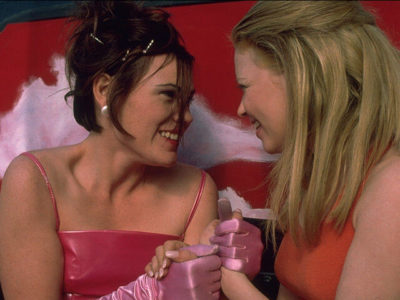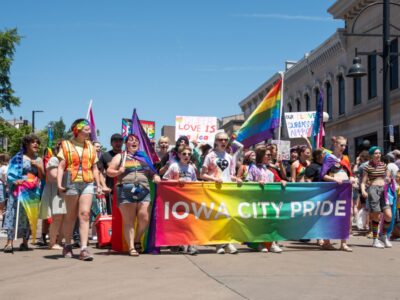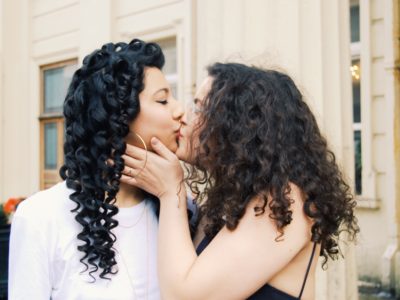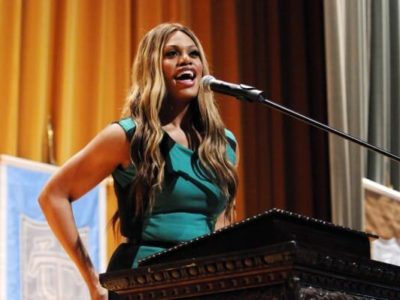Chimamanda Ngozi Adichie recently spoke to Channel 4 news in an interview about transgender women and their gender experience in the world. As one of the world’s most popular platform feminists, she often gets praised for her various TED Talks. In the interview, Adichie said that a person who has lived as a man—for whatever portion of time—has had experiences that cannot be equated with those born female. Some people understood that she insinuated that transgender women are not “real women.”
Although many hold mixed opinions about Adichie’s implications, I believe it’s fair to say that this conversation needs to happen in society—especially today. Whether you agree with her or not, we need to find a way to discuss feminism and transgender women without a binary. A binary that sadly seems to exist when we do.
Merriam-Webster’s Dictionary defines feminism as: “organized activity on behalf of women’s rights and interests.” In her novel, We Should All Be Feminists, Adichie defines a feminist as: “A man or a woman who says, ‘Yes, there’s a problem with gender as it is today and we must fix it. We must do better. All of us, women and men, must do better.’”
However, the actual definition of feminism and its application in the world has shaped into a discrepancy of sorts. Adichie’s definition does frame the context more so than the Merriam-Webster. But neither of them mention how gender experience seems to so greatly affect what it means to be a feminist. And it shouldn’t. “Feminism, as a movement, has always been transphobic. While third wave feminism has been more inclusive, it still has its problems. So far, feminism has done very little to benefit trans women, but we’ll keep showing up anyways,” said Teagan Rabuano, NYU Tisch drama major who identifies as a transgender woman.
In response to the criticism received from her interview, Adichie clarified herself in a Facebook post, still maintaining that gender experience does have an effect, but blames the “language orthodoxy” for people believing that she would insinuate that trans women are not “real women.”
“I didn’t apologize because I didn’t have anything to apologize for,” Adichie told The Guardian. “What’s interesting to me is that this is in many ways about language….that there is sometimes a kind of language orthodoxy that you’re supposed to participate in and when you don’t there’s a kind of backlash…”
And while one may still not agree with how she said it or what she said , her discussion about language is true and present in society today. “There are different routes to womanhood and different experiences of privilege and power across the whole spectrum of womanhood,” Visiting Professor of English and Gender Studies at Colombia University Jack Halberstam said. “As she said in many interviews, the attack on her is misplaced and indicates a problem with the way people conceive of the scale of activist agendas,” he added.
What is “the language orthodoxy”? An orthodoxy is generally defined as a generally accepted practice or doctrine, regardless of the religious connotation of the word. So a language orthodoxy is an accepted practice or use of language in our societal system.
By claiming that the “language orthodoxy” is what caused her backlash, Adichie meant that the use of the word “different” or the syntax of her statement about gender experiences led to her criticism. It was not what she said, but how she said it. In the genre of gender, a certain sensitivity or vernacular is expected due to the history of the social construct in this country. When the expected vocabulary isn’t used, but criticism arises.
Adichie further clarified herself to The Guardian, “Had I said, ‘a cis woman is a cis woman, and a trans woman is a trans woman,’ I don’t think I would get all the crap that I’m getting, but that’s actually really what I was saying.” However, Adichie claimed that “cis” is not a word that is in her vocabulary—a word that many use in cannon.
Kayla Clifford, NYU Tisch Junior, related with Adichie in this sense. “I think that I agree with Chimamanda, in that the language surrounding gender and feminism seems to stem out of academic contexts and therefore has certain expectations attached to it.” Clifford sees language as impressive in nature. Adichie’s harsh backlash an example of this. “One of the reasons I think women, transgender women and men are not being represented fairly in politics is because the language surrounding the arguments is exclusionary,” Clifford said.
Still, many saw Adichie’s distinguishing of women experiences as degrading and hurtful, regardless of different gender experience. “I would not reduce womanhood to one experience. No two cis women have the same experience with gender or womanhood just as not two trans women do. While I proudly claim my identity as a trans woman, and recognize that there is a separate community of trans folks, I do not see the point in separating women as ‘trans vs. cis,’” said Rabuano. “We should not be an afterthought to feminism…”
Halberstam echoed this statement differently. He said that transgender women and feminism should not be discussed as if they aren’t in the same group. “I would not pose ‘feminism’ and ‘transgender women’ as somehow not in the same group and as being required to ‘work together.’ Transgender women are mostly feminist and they advance all kinds of radical feminist agendas,” he said. They should be discussed together, not separately.
But, as Adichie and Rubuano point out, in different ways, no gender experience is similar. Just as one can be a feminist by advocating in different ways, one can be a woman in infinite ways. The discussion should revolve around how we discuss these truths. Transgender women belong in the feminist cannon, we need to discuss moreso how we discuss these truths.
“I think a popular conversation right now is that transgender women are excluded when women talk about their anatomy: uteruses and vaginas,” said Clifford. However, as she and many feminists around the world point, including Adichie, this should not be the case. Every woman is different. And identifying as a feminist means accepting and supporting all those differences. Clifford said, “If you believe that women should have equal rights then you can’t pick and choose to advocate for the rights that only affect you.”
How do we do this?
Rabuano points out a very simple solution: “Include them. I think as our understanding of gender continues to expand, we need to start asking difficult questions.”
Opening that conversation to transgender women does not end the problem, though, either. “Where do non-binary folks fit into discussions of womanhood and feminism? Where do trans masculine people fit into discussions about reproductive justice? How can we create a society that not only tolerates the trans community, but embraces and celebrates us?” asked Rabuano.
We need to become more than aware of these questions; we need to actively listen. Not everyone may say the right thing in the right way. But that doesn’t mean there isn’t understanding or a desire to learn underneath what may be a “language orthodoxy.” The key? Keep listening and keep learning.



















